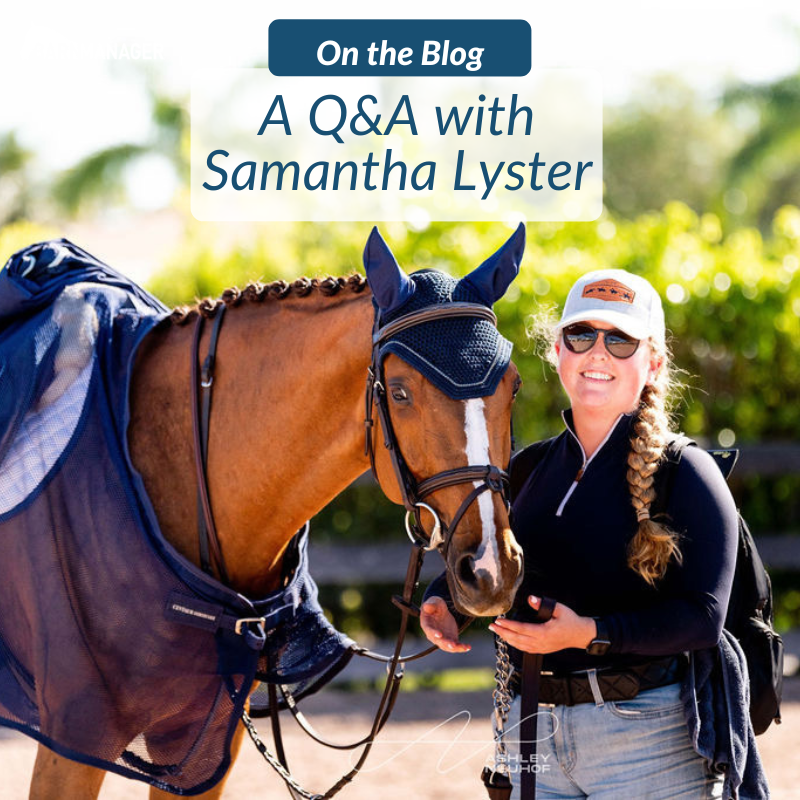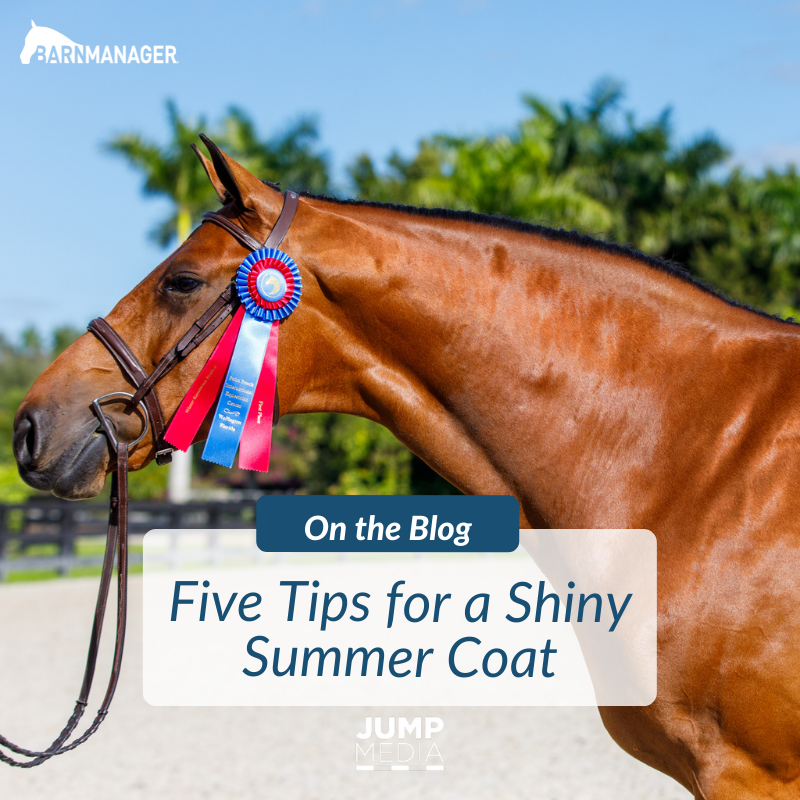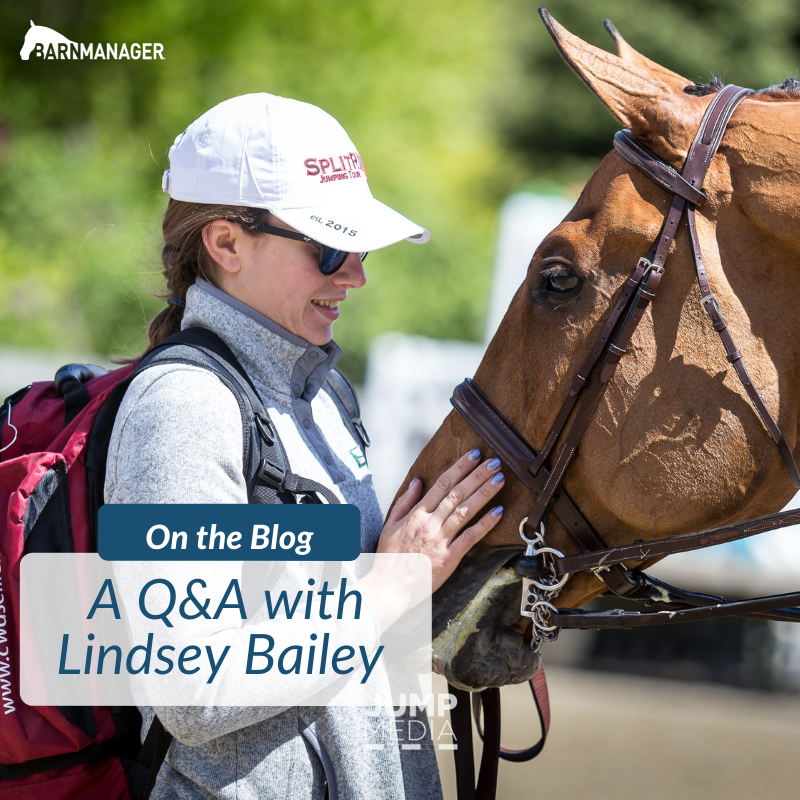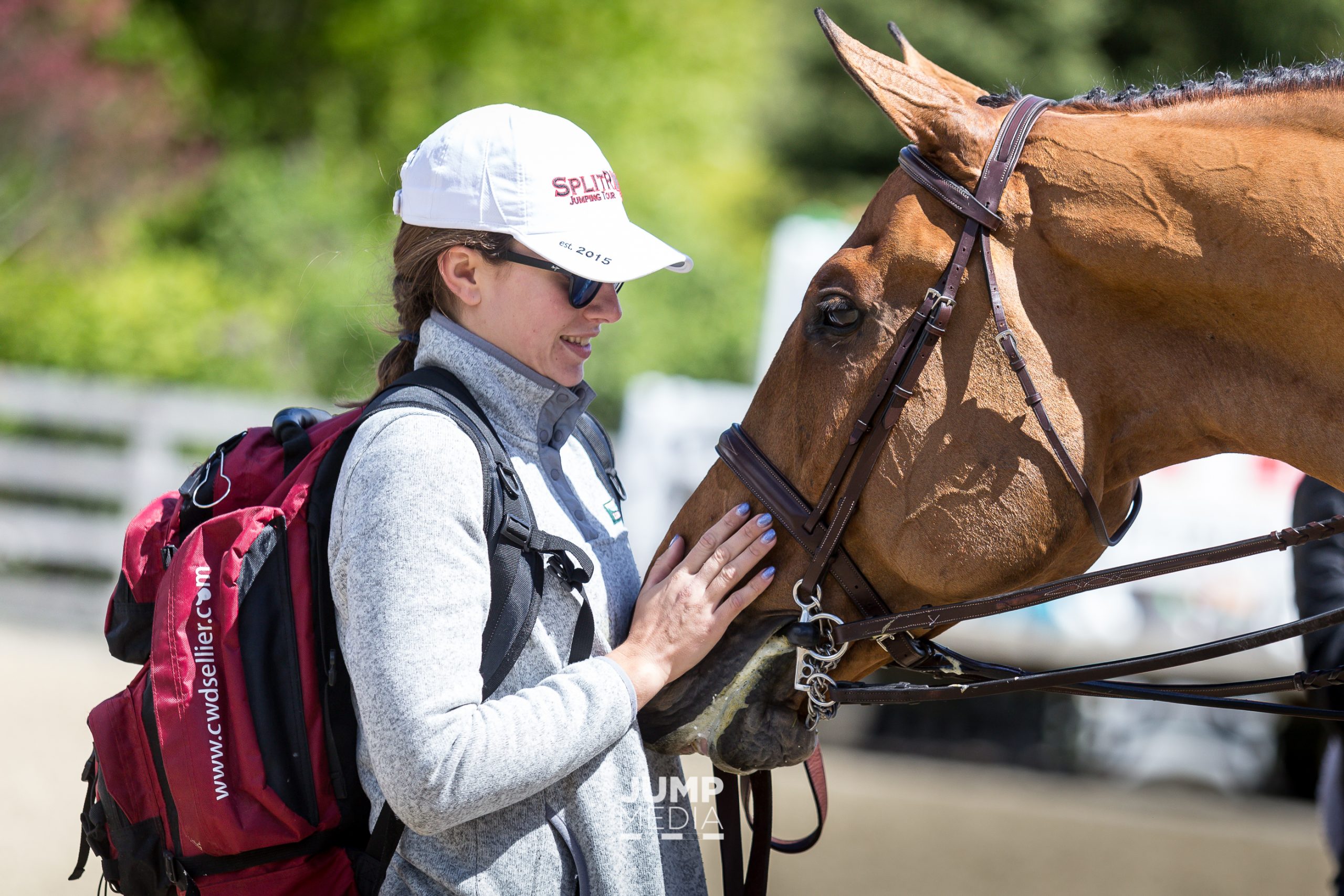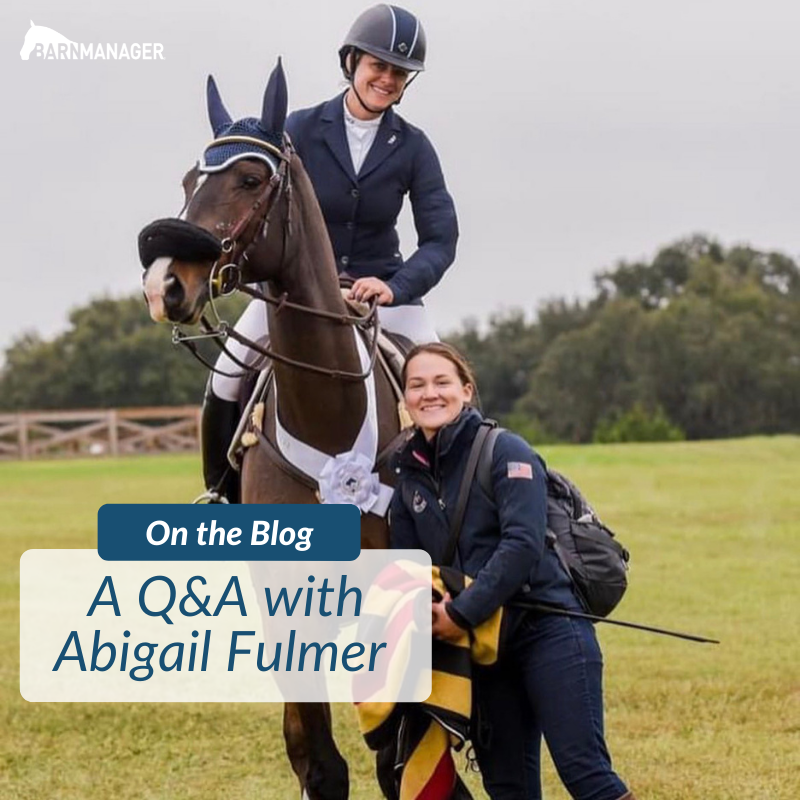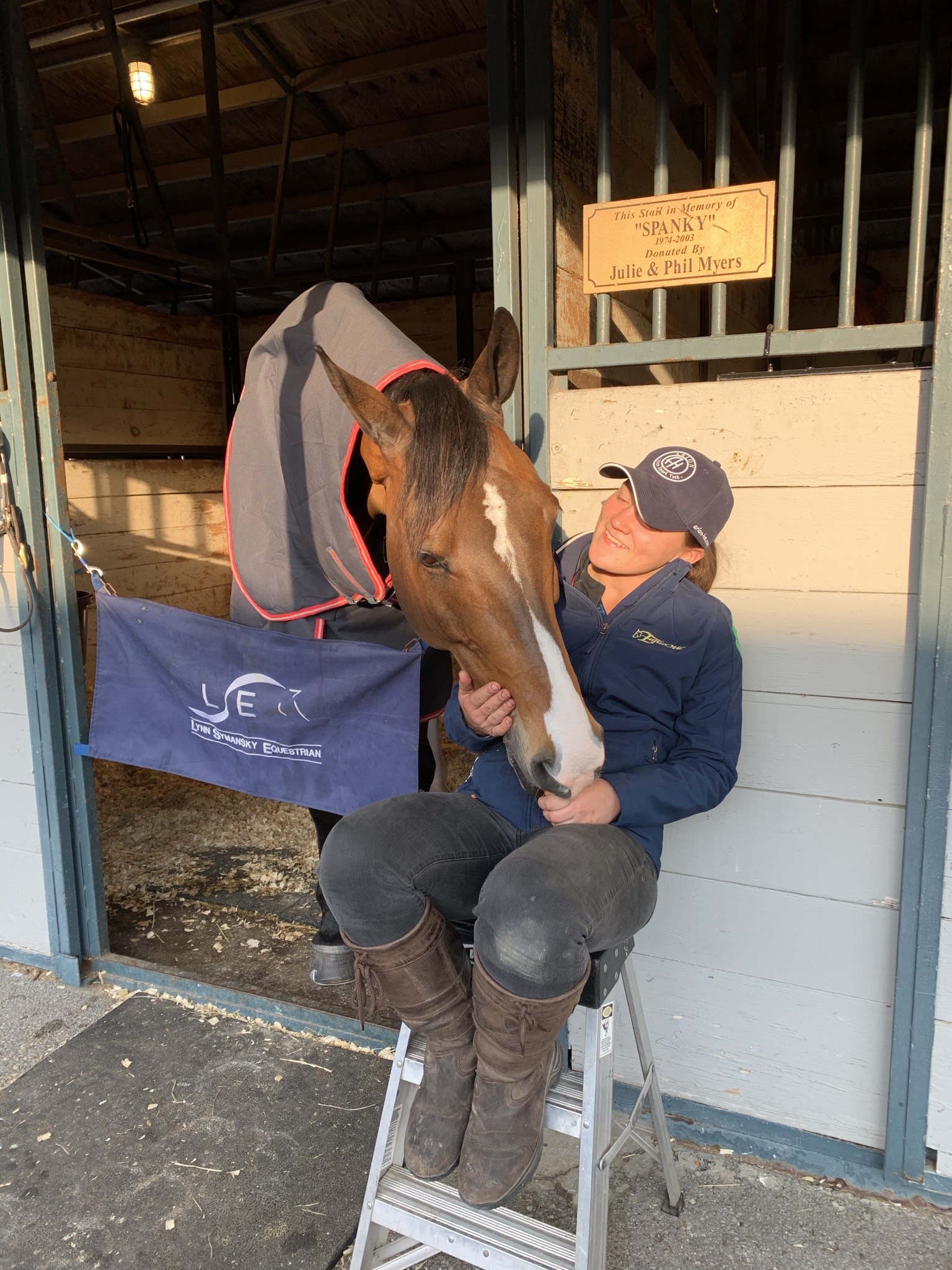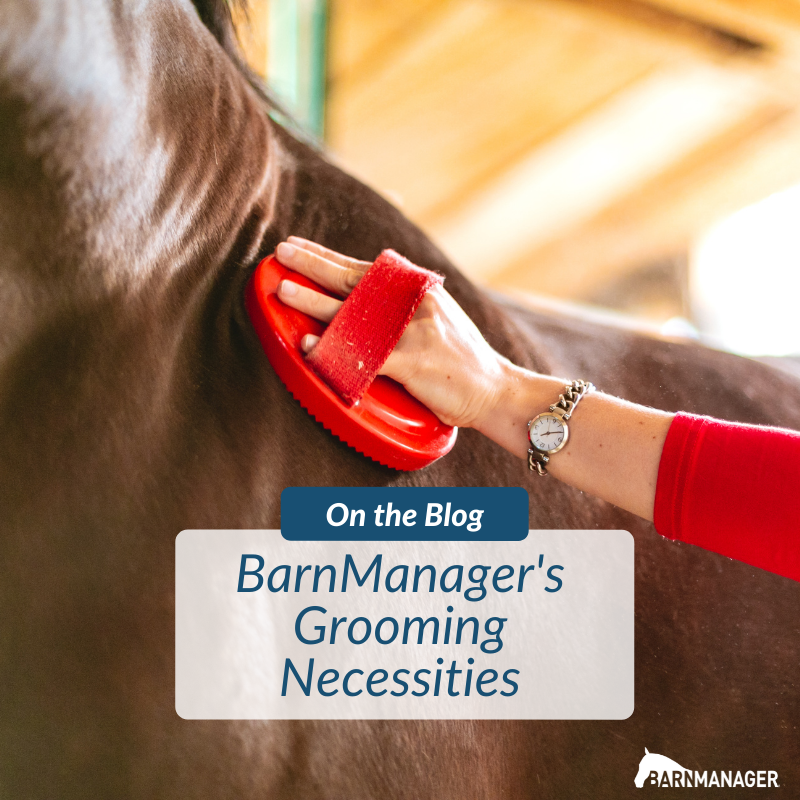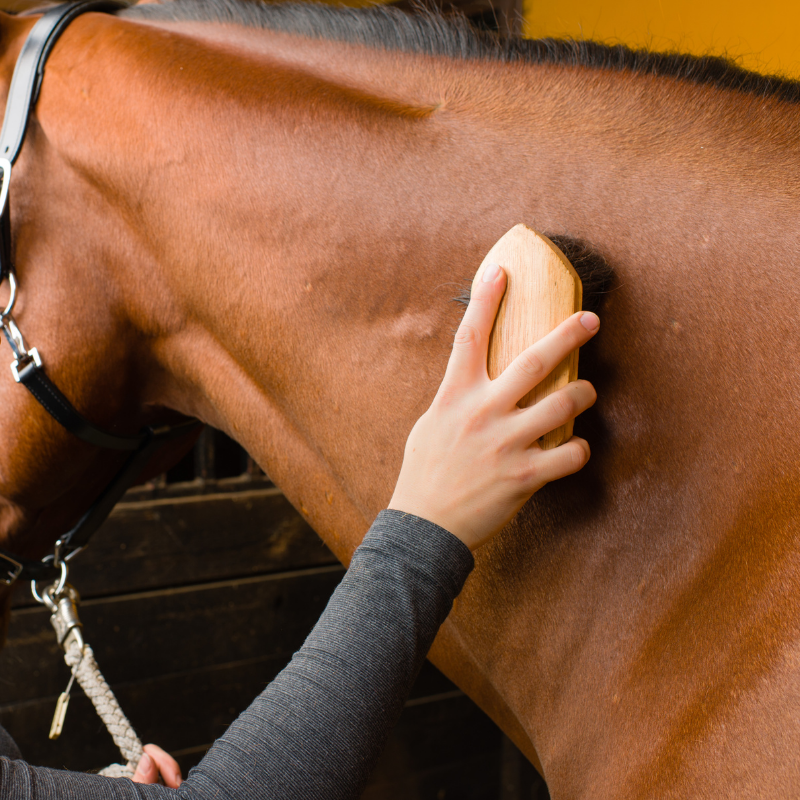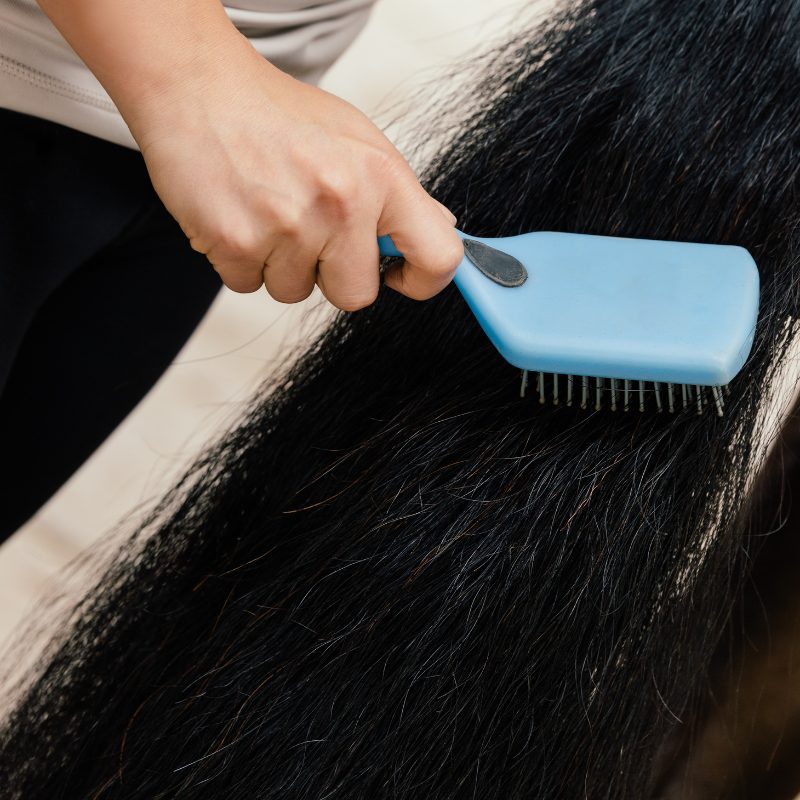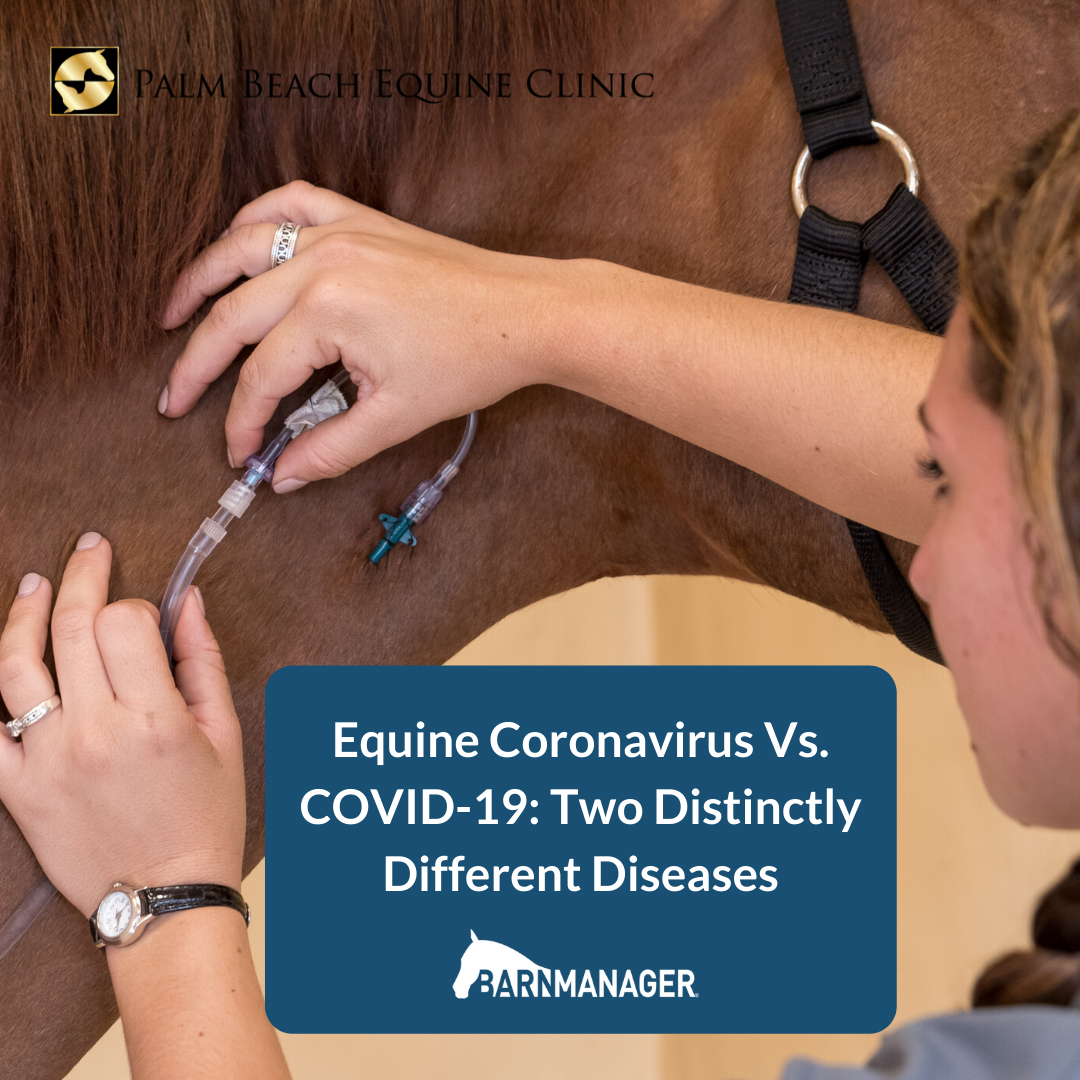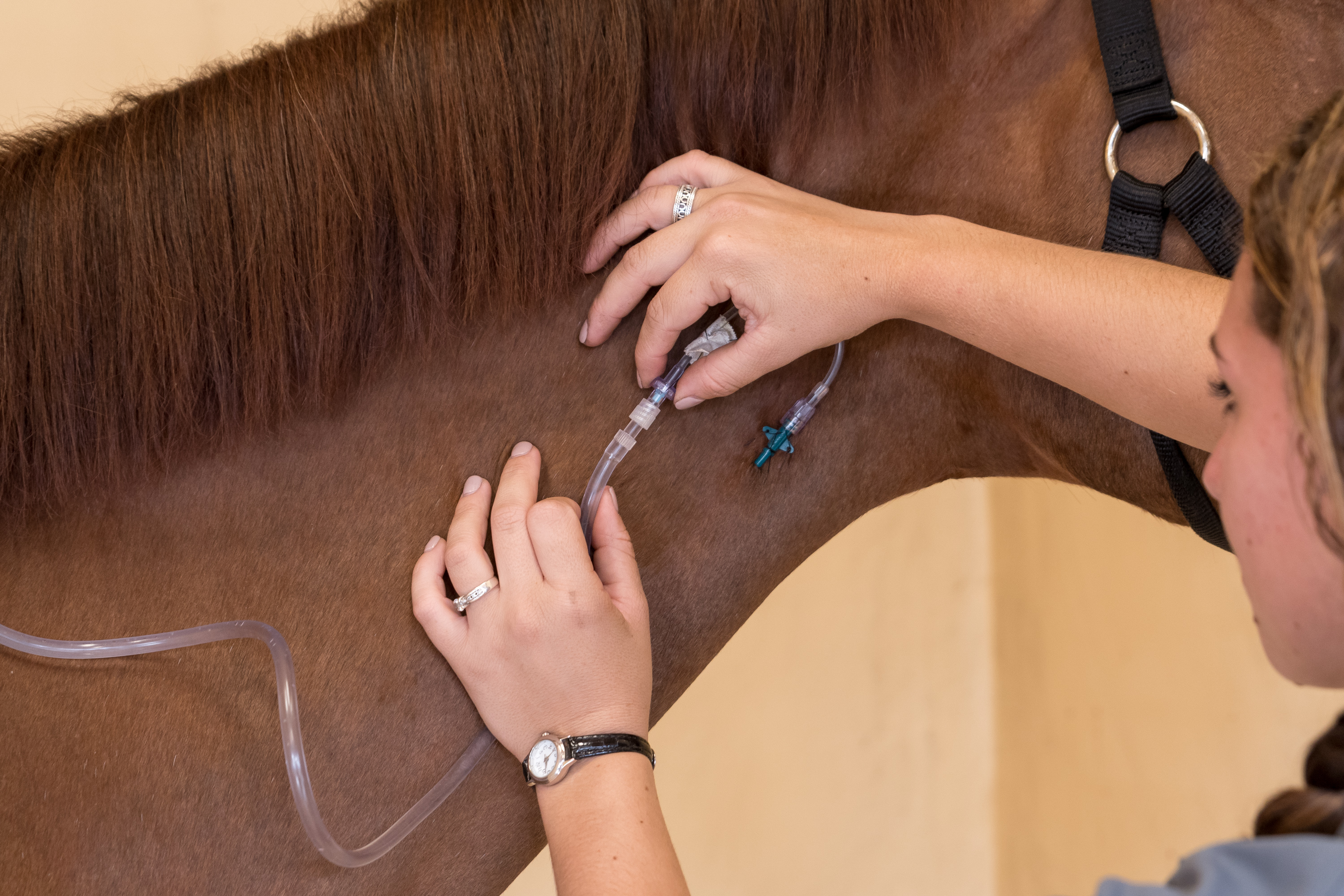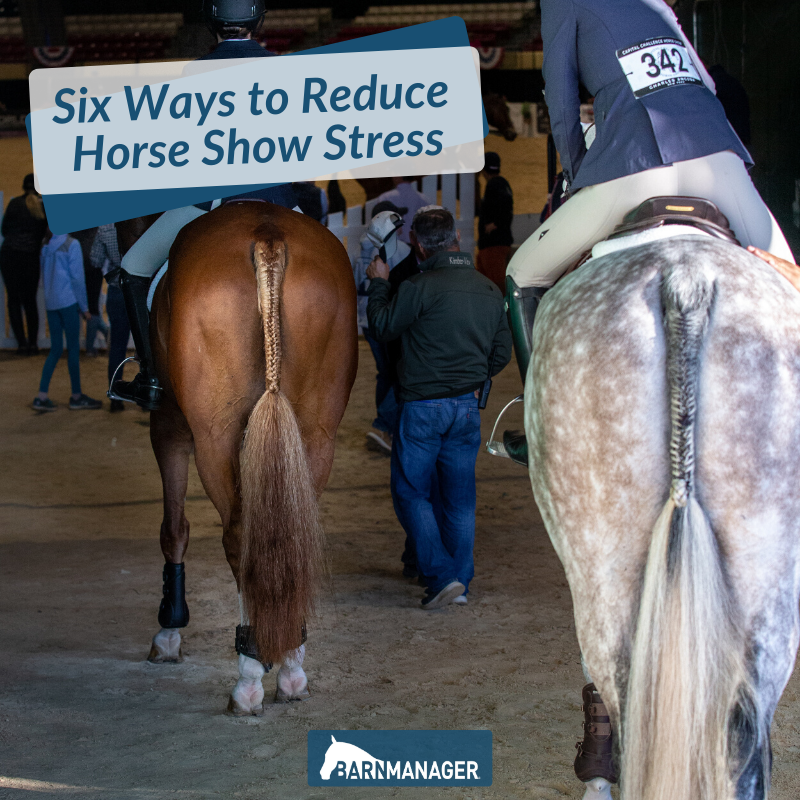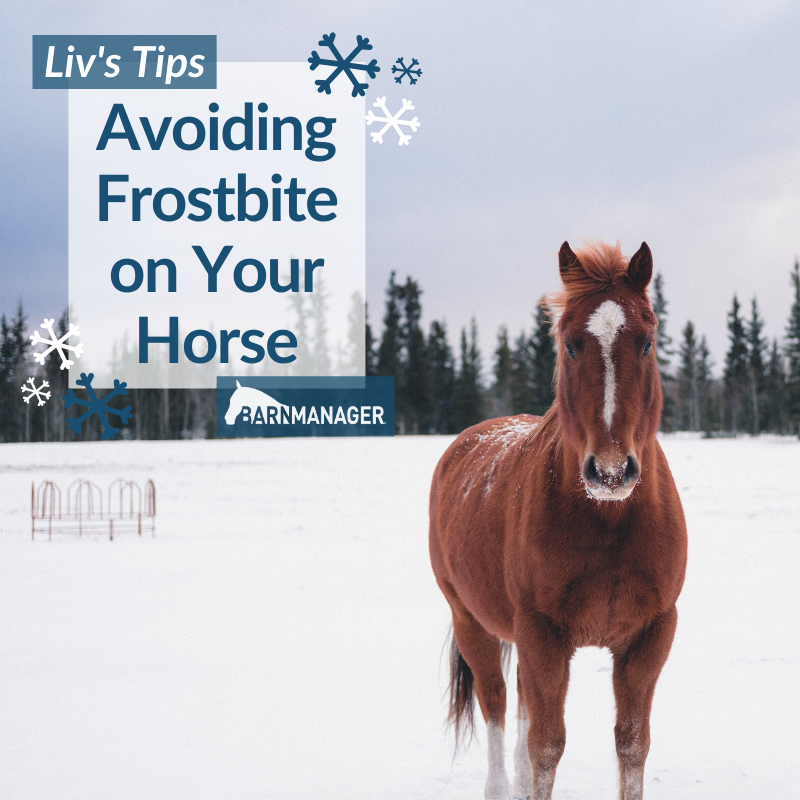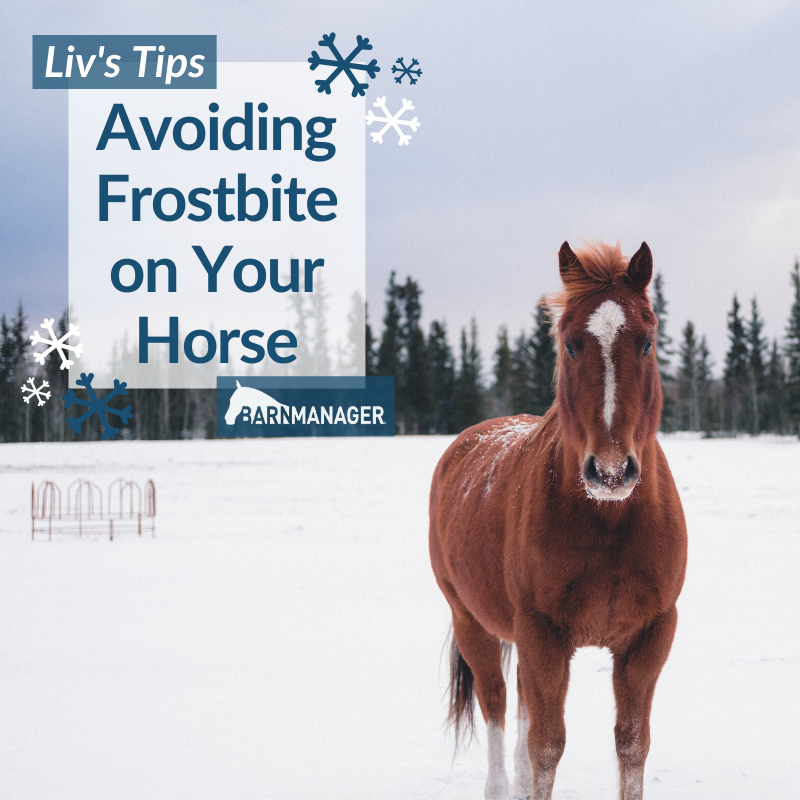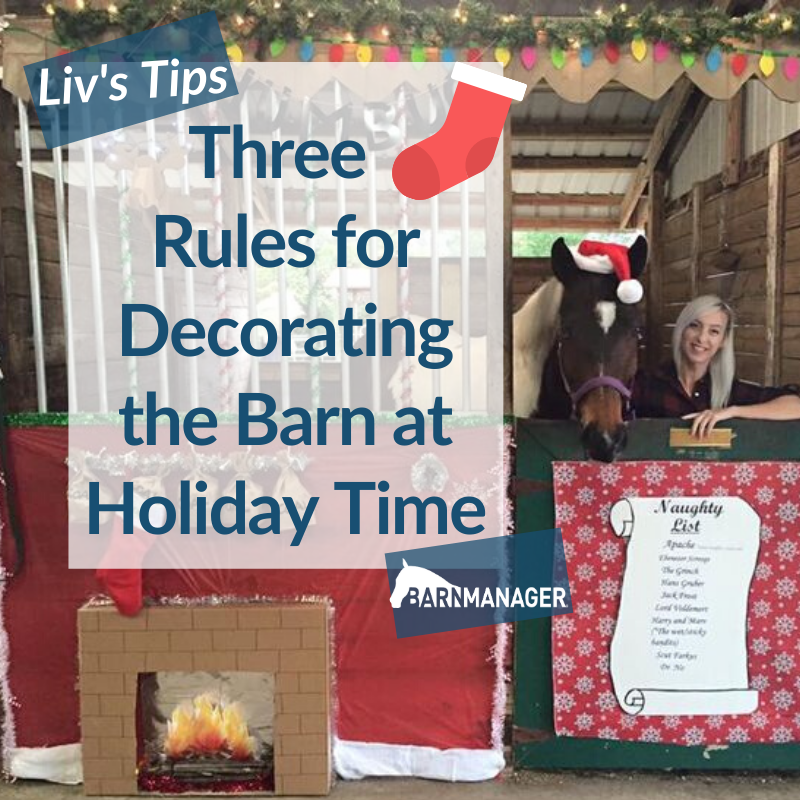There are several important products and tools that should be in every groom box and ring bag to ensure a clean and shiny horse at the barn and during competition. Keep reading for some of BarnManager’s grooming essentials for at home and in the show ring.
Groom Box Supplies

Most Important Items
Your grooming box at home should have all the necessary tools you need to thoroughly clean your horse. To begin, make sure you have a hoof pick, curry comb, hard brush, soft brush, and mane-and-tail brush. Hoof picks should be used before and after you ride to ensure there are no rocks or objects stuck in your horse’s hooves and to remove footing and dirt. For curry combs, there are several different options; some prefer a mitt while others like to use a regular rubber one. The style does not matter as long as you are able to successfully remove dirt and old hair. Having two different types of brushes is helpful because a hard brush is perfect for getting dirt or mud off of your horse’s legs, and a soft brush is great to use on the face. While many people do not brush their horse’s tail every day in order to help to keep it full, having a mane-and-tail brush or comb is good to have to gently remove tangles or debris.
Once you add brushes into your grooming box, the next step is to make sure you have a towel, tail detangler, and fly spray. Towels are always handy for wiping down a horse after brushing them. A towel can catch any leftover dirt and add a little extra shine. A tail detangler is a definite necessity to brush a tail without pulling too much of it out. Fly spray may not be needed during the colder months, but it is definitely important in the summer and if you travel to warmer climates in the winter.
Extra Small Items
Lastly, your grooming box should have scissors, wound cream, and rubber bands. Scissors are nice to have close by for trimming a mane. You may also use them to cut off extra Velcro on a polo, remove a tag from a new saddle pad, or to trim the ends of your horse’s tail. Horses tend to get scrapes and nicks easily, so having a wound cream is essential. Rubber bands are a useful tool to keep on hand for braiding over an unruly mane. Also, if a keeper breaks on a bridle, a rubber band can be a good temporary fix.
Click here for a checklist
Ring Bag Supplies

Most Important Items
Several components of your groom box are also tools that you should keep in your ring bag. For example, a hoof pick, scissors, hard brush, towel, and mane-and-tail brush are necessities for a quick clean-up before entering the show ring. You never know when you might need a hoof pick or pair of scissors at the last minute. For this reason, having them in your bag is key. A brush can be useful for cleaning off the footing or dirt on a horse’s legs. A towel can be used to clean off the rider’s boots as well as the horse’s mouth. Quickly brushing through a horse’s tail can help maintain their picture-perfect look in the ring, especially for the hunters.
Fly spray, a tail detangler, and wound cream can also be put in your ring bag, along with baby powder, hoof oil, and baby wipes. It’s good to have fly spray and a tail detangler nearby when you are at the ring. Fly spray is very important to have in the summer heat when the flies are bad. Horses can often nick themselves or grab themselves in the schooling area. For this reason, you should try to have a wound cream close by. Baby powder is a great product for whitening socks before a hunter hack or model. Hoof oil should be applied right before a horse walks into the ring. Baby wipes are perfect for quick touch-ups to ensure a clean look.
Extra Small Items
The last few small items that should be kept in a ring bag are safety pins, a hole punch, boot polish, rubber bands, zip ties, and duct tape. Safety pins hold a jumper’s number in place on a saddle pad can sometimes come loose, so extras are helpful. A hole punch can come in handy for last-minute tack adjustments. Your rider will appreciate you having boot polish if their boots get extra muddy or they run out. Rubber bands are great for fixing a jumper braid. They can also serve as a quick fix for broken tack, along with zip ties. Duct tape can be useful to have if a horse pulls a shoe at the ring.
In order to make sure that your whole team knows what to bring to the ring, you can use BarnManager’s list feature to create a checklist of all necessary grooming supplies for a ring bag.
Click here for a checklist
Depending on the level, discipline, and type of barn you work for there may be other important items to consider, but the supplies above are the core tools that can ensure your horse will be looking its best at home and in the show ring.
Have questions about utilizing BarnManager or want to give it a try for yourself? Request a live demo here!
BarnManager is designed to be a part of your team, with the compatibility and credentials necessary to improve communication, simplify the management of horses, and get you out of the office, off the phone calls, and into the barn with the horses you care about! Click here to get a free demo and find out more!

